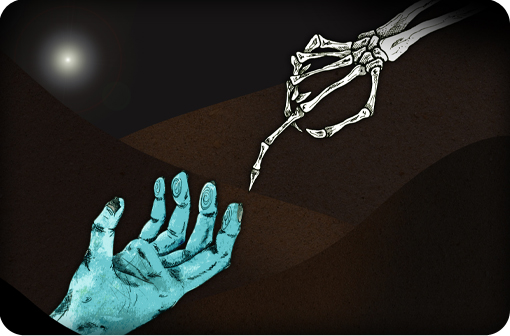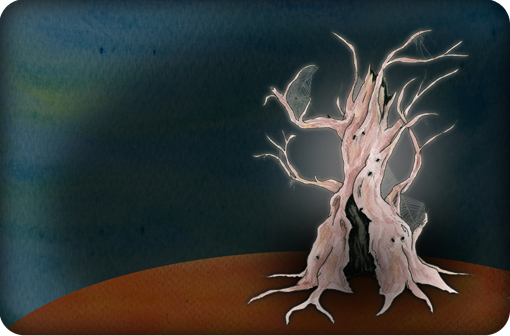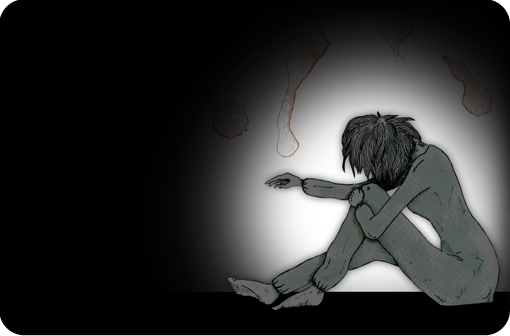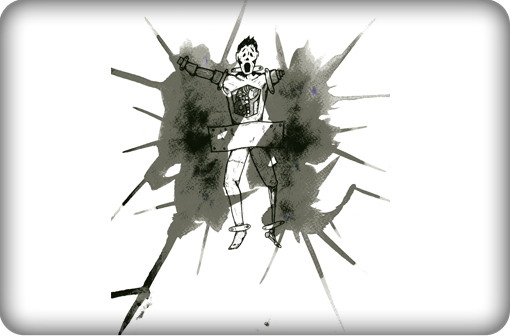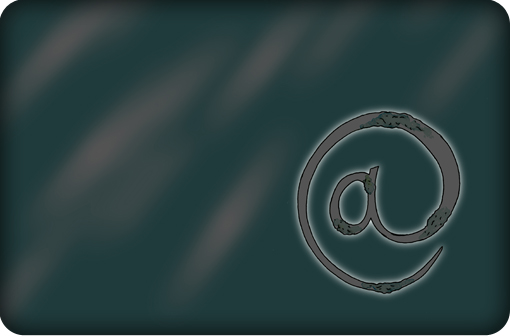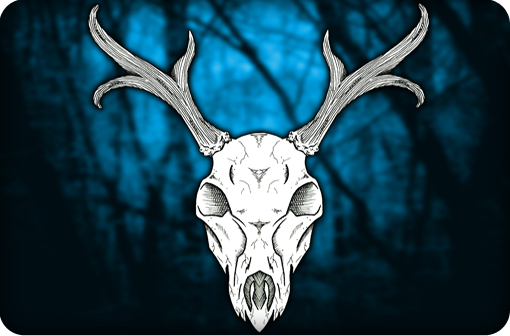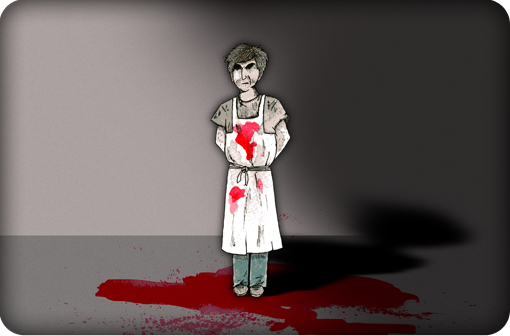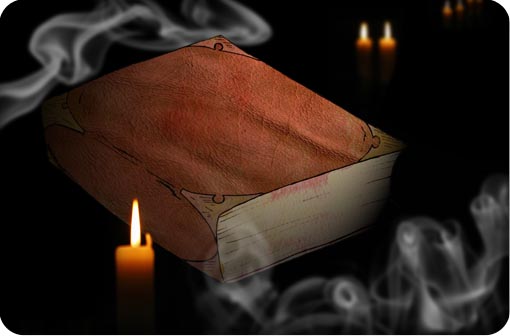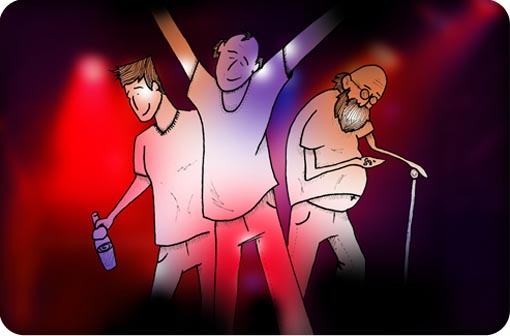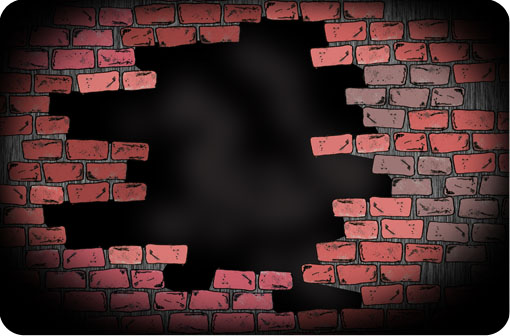
I’ve always had a lonely childhood, sickly from birth, no mother to speak of, and a father always absent with work. I spent most of my days at my uncle’s estate; however, he was seldom there, so I was left to my own devices. The only reason I stayed at the estate rather than at home was due to it being better for my health, apparently. I never felt any better, but my condition never seemed to deteriorate.
Uncle’s estate was a very strange place, dark, vast, and possessing a disorientating sense of timelessness. Days would merge into each other in a fleeting mass, or feel like they’d never happened at all. When I was very young I’d wander the manor and grounds out of sheer boredom, staring into lifeless gardens, or contemplating drab and dreary artwork that laced endless corridors. That changed when I found the sands.
My wanderings had found a study full of taxidermy; there was little of interest, but the various curios helped ease my boredom at least. However, at the back of the room was a marble archway, with stairs leading down into a heavy and thick gloom. I cautiously entered, but with every step the darkness intensified. Wading through a molasses thick void, my vision got worse instead of adjusting, cloyed with blackness.
Eventually, I saw a dull lavender hue in the distance; flickering, open flames. Soon vision returned, and I saw it, a library of sand filled jars. Childish curiosity saw me run to a shelf and spill its contents onto the floor. A rainbow of sand lay in front of me, silky soft and so fine you could barely see individual grains. I bolted to the kitchens, grabbed two buckets, one full of water, and dashed straight back to the sand.
For what felt like decades, I carefully tailored wet sand. First, a basic castle, then with practice, extra towers and keeps. Eventually, I learnt how to make a whole citadel, full of bridges, domed masterpieces, and ornate temples surrounding marketplaces. I made stories for this kingdom and adapted its landscape accordingly. New wonders, damage caused by wars and battles, renovations ordered by royal decree. I hid my kingdom in a corner of the sand library, I guessed Uncle wanted to keep this place secret. You don’t hide sand unless it’s valuable.
One day however, disaster struck. Whilst planning the biggest expansion of my sand realm, I spilled the water bucket. In an instant, my creation collapsed and dissolved away into a multi-coloured stained mush. Devastated, I began to cry; not just because of what happened, but because of what was to come.
Uncle appeared, in black, as always. A deathly glare from his deep set sockets. A thin, bony finger pointed at me and he began to boom. I can’t remember most of what he said; I didn’t understand a lot of it. All I remember is Uncle’s voice resonating, being dragged back upstairs, and wiping tears away with sand smeared hands. I was forbidden from ever entering the library again.
I’d like to say I learnt my lesson, I didn’t, I was still a child. It wasn’t long before boredom led me to the library once again. I was in the stables, where Uncle kept his prized horse and an oversized gardening tool. Behind some riding robes, I found a trapdoor, lifting the hatch slowly, I saw the familiar lavender hue and ventured into the darkness.
Back in the cavernous hall, I explored its treasures more thoroughly. The library seemed never-ending, paths lit by marble basins full of burning oil, giving off the purple flames. Midnight rugs formed trains between mile high cabinets. Each made of thick ebony, carved with all manner of mythical creatures, all claws, wings and penetrating eyes. The jars were dense glass in ironwood frames. But best of all, the sand moved! Trickling from one end to the other. Some jars were Spartan in design, and others exuberant and outlandishly decorated.
I used to enjoy wandering down the aisles, looking at the various containers; they seemed to be arranged by design. Some looked distinctly Oriental, others Mayan influenced, some classical. However, there were all mixture of sizes and dropped sand to their bottoms at different speeds. It looked so chaotic and disorderly, but at the same time, how it should be, as if preordained. However studying the jars didn’t go without creating further trouble.
There was one jar in particular which fascinated me, grander in both design and scale than those surrounding it. Rather than wood, the frame was marble. Its design a mixture of Greco-Roman and Christian iconography. Angels and apostles mixed with myths and legends. However, my attention was short-lived. Higher up, I saw an equally large glass, if not bigger. Arabic in design, covered in gold, jewels, sweeping lines and bright colours, a thousand and one moons decadently littering the woodwork. Hurriedly, I put the first jar back, reaching for the second. But, out of the corner of my eye, I saw the first topple off the shelf, slamming onto the floor and shatter into thousands of fine shards. Glass and sand indistinguishable. Chunks of marble scattered throughout the hall. I didn’t wait around for Uncle’s reaction. As I ran, I heard his bellows, and could feel his grim stare burning into me.
After what felt like days, I sheepishly made my way back to the manor. Uncle beat me. His hands were like fire and stripped the flesh on my back to the bone. He insisted that this was gentler than knowing what I’d fully done. I didn’t believe him at the time, mostly as the wound never healed properly. He insisted my being in the library would lead to trouble; the sands were important and mustn’t be tampered with.
Soon adolescence’s rebellious nature made me ignore all warnings and I entered the library again. To avoid being caught, I went at the dead of night. Armed with an oil-rag torch, I’d slowly venture around. The hallways were more fascinating at night, they seemed more labyrinthine like, they’d twist and warp before my eyes. However, my illness seemed to be getting worse, so I assumed it was hallucinatory. I still loved opening the jars and playing with the contents; but sometimes, my coughing fits led to me dropping jars or filling them with blood and phlegm. I’d hide evidence of my meddling at the back of shelves in hopes Uncle wouldn’t find out. As my condition worsened, the glass jars seemed to swell and shrink, and sometimes the volumes of sand would seem to mysteriously alter too.
I’d like to say the damage I caused was only ever minimal, but disaster always followed into the sand library. Once, I dropped the torch I was carrying. It burnt a cabinet, cracked some of the jars, and sand filled the floor. In a panic, I put the fire out and tried to clean up, brushing sand under the cabinet hoping Uncle wouldn’t notice.
After that, I gave it a few years before I ventured back to that forbidden archive, too afraid of causing more noticeable damage. Plus, my health was deteriorating rapidly; Uncle joked that anything linked to Father was pestilent and riddled with disease. My interest in the sands never ceased though, asking Uncle about it, he’d only say that my life was tied to the sand.
Curiosity soon got the better of me, I found a skeleton key in one of Uncle’s chambers and once again, armed with a torch, entered the sand library. It seemed darker than usual, unfriendly and full of danger. To try to brighten the hall, I dipped my torch into one of the burning oil vats; however, this just filled the vault with smoke. It became hard to breathe and triggered a violent coughing fit. My abdomen jerking wildly, I lost my footing and stumbled into a cabinet. It toppled backwards, hitting other shelves; a shower of glass fell around me. Amidst a flurry of shards, sand and smoke I managed to steady the cases, but the damage was done. Powder-like dust blocked my vision, all I heard was shattering glass and the clicking of Uncle’s footsteps across marble.
He didn’t say anything, just lifted me within his cold and bony grip. Grit filled eyes and violent coughing meant I couldn’t see where I was being led. A door slammed, and my vision returned in a room full of clean air, but I wish it hadn’t.
A marble statue of myself, naked, sunken features, crushing a globe in my right hand. The statue was crying blood. That wasn’t the worst part. Surrounding the effigy was a whirling torrent of phantoms, mixed races and ages, from various points in time. Individual shades flittered into focus, re-living their last moments. Phantasms of bricks fell around me as mothers shielded babes from the rumbling heavens; soon turning into thunderous tidal waves, which obliterated the prayers of a civilisation begging gods for mercy. Salt spray moistened my skin, which evaporated as spectral children were incinerated before me, the smell of charred flesh in the air.
“Your father asked I never showed you this. But, I have to. This is who you are and all you have done, Destruction. You create and end where you shouldn’t, not through malice but through nature. However, you need to learn what you are capable of.”
Uncle continued to explain in detail what I never understood as a child. Atlantis, the fall of Byzantine, The Black Death, The Great Fire of London, other massacres caused by my blundering. But now, I’d done something atrocious across Europe he could never forgive. Seeing these souls first hand was my punishment. He knew I couldn’t stop myself. But I had to see this.
Years have passed since then, I actively try to avoid the sand library, but to no avail. Trancelike, I’m drawn there, unable to stop myself. Sometimes, I find myself standing amidst decimated aisles in a daze. I have even awoken from deep slumber covered in grains.
I’m wandering the manor grounds, hoping exhaustion will prevent my subconscious wanderings. Exiting a maze, I see what looks like a small temple in the distance. I can’t ignore it. Something is drawing me forward. Through the threshold, I realise it’s a mausoleum. There are four colossal hourglasses inside; the first is cradled by a marble effigy of Uncle’s bony frame, the next of Father’s sickly form. The third has an emaciated guardian, finally, one surrounded by a mountain of muscle and aggression. I shiver. I shouldn’t be here, but I can’t stop. Behind these, another hourglass, devoid of sand and covered in dust. I begin to rub the bronze plaque at the top, revealing my name. Destruction. I fall back with a start and am greeted with the crunch of a weak floor, and the snap of metal. Suddenly, my hourglass falls from its fixture, slamming down. An almighty smash, the floor vanishes and I fall into darkness with it.
My descent is broken on a cabinet. I’m in the library again. I tumble to the floor like a rag-doll and look up to see the same vast cabinet topple towards me. Howling as heavy ebony crushes my legs, splintering glass and spilling sand drowns out the crunch of my bones. The wooden frame has knocked others over, they fall like dominoes. Soon the library is filled with the image of crumbling cabinets, the sound of breaking glass, the smell of spilt oil fires lighting wood, and the sensation of sand rising up against my trapped body.
The wood is too heavy to free myself from.
I can only watch and cry as the entire library is destroyed.
The sand rises quickly, I struggle to keep my head above it.
My lungs begin to fill up with grains.
The air grows cold.
Uncle slowly advances, dragging his scythe along the sand.

